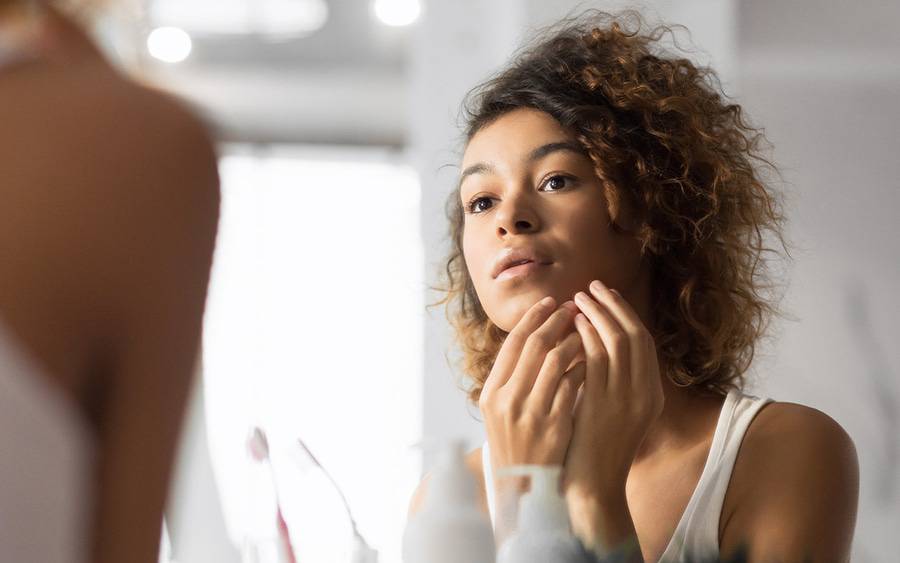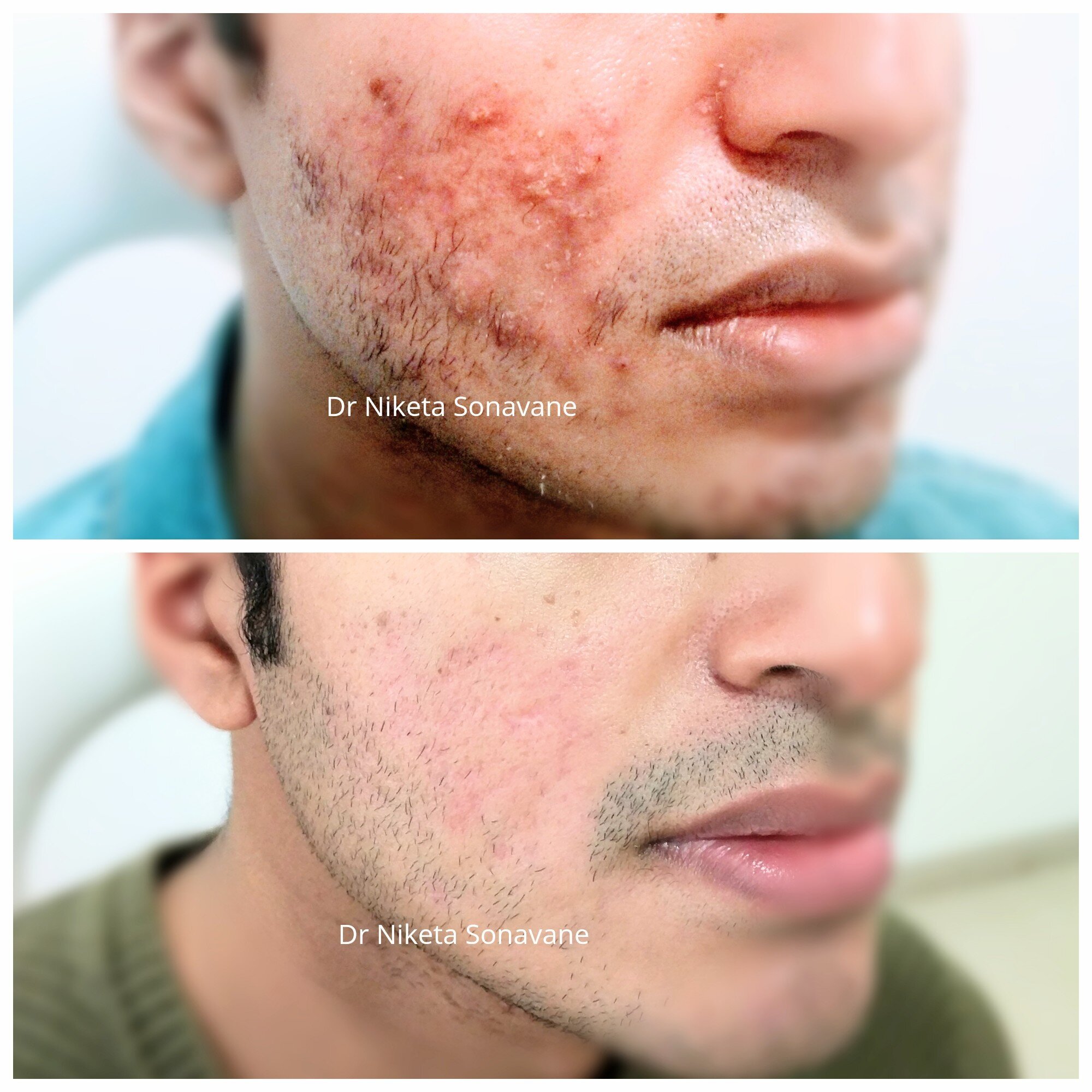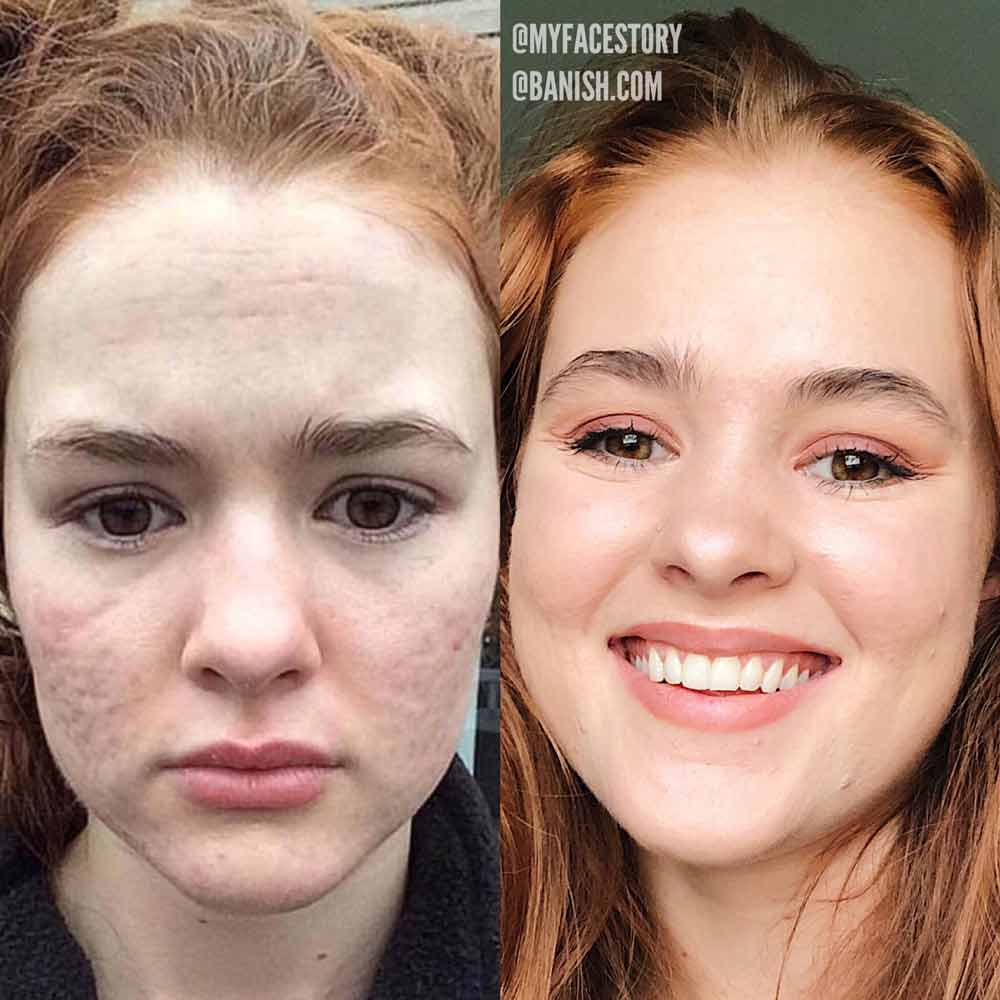Sensitive Skin? Find the Right Acne Scars Treatment for Your Requirements
Sensitive Skin? Find the Right Acne Scars Treatment for Your Requirements
Blog Article
Recognizing the Various Skin Disease and Efficient Therapy Options for Acne Marks
Acne marks stand for a complicated interaction of skin problem that significantly influence people' self-confidence and total skin wellness. Comprehending the unique sorts of acne scars-- hypertrophic and atrophic-- alongside their underlying reasons, is critical for determining efficient treatment methods. Numerous healing options exist, ranging from sophisticated skin-related procedures to all-natural remedies. The effectiveness of these therapies commonly pivots on personalized evaluations by certified experts. As we discover the landscape of acne mark monitoring, it becomes apparent that the journey towards more clear skin may entail greater than just topical solutions.
Types of Acne Scars

In comparison, hypertrophic marks arise from an overflow of collagen throughout the healing process, causing raised locations on the skin. These marks are frequently solid and can differ in color, often appearing red or darker than the surrounding skin.
Understanding these kinds of acne scars is critical for developing an efficient treatment strategy - acne and acne scars treatment. Options may consist of chemical peels, laser treatment, microneedling, or facial fillers, customized to the particular mark type. A thorough appointment with a skin doctor can help figure out one of the most ideal intervention, taking right into account the person's skin kind, mark seriousness, and general skin wellness
Causes of Acne Scarring
Scarring occurs as a result of the body's natural recovery response to inflammation and injury triggered by acne lesions. When acne types, it triggers an inflammatory response, leading to the release of various cytokines and development aspects that advertise recovery. This process can in some cases lead to too much cells development or insufficient repair, resulting in scars.
The key reasons for acne scarring consist of the intensity of the acne itself, duration of the lesions, and specific skin types. Serious inflammatory acne, such as blemishes and cysts, is much more most likely to lead to scarring due to much deeper tissue damages. In addition, incorrect handling of acne sores, such as choosing or pressing, can intensify tissue injury and inflammation, increasing the possibility of scarring.
Genetic proneness additionally plays a considerable duty; people with a family members history of scarring are at a higher threat. Furthermore, skin type and shade can affect mark formation, as darker complexion might experience post-inflammatory hyperpigmentation, while lighter skin may develop atrophic marks.
Ultimately, comprehending these reasons is essential in taking care of acne and minimizing the potential for scarring.

Therapy Options for Scarring
Effective therapy alternatives for acne scarring vary relying on the kind and intensity of the marks. Usually categorized right into atrophic, hypertrophic, and keloid marks, these problems need customized approaches for optimal results.
For atrophic marks, which are characterized by a loss of cells, therapies such as chemical peels, microdermabrasion, and laser therapy are generally used. These methods promote skin renewal and promote collagen production, therefore improving skin texture. Subcision, a minimally invasive procedure, can additionally be effective by separating coarse bands below the skin.
Hypertrophic and keloid scars can be a lot more testing to treat. Options include corticosteroid shots to minimize inflammation and squash the scars. In some situations, cryotherapy or laser treatment may be suggested to minimize their appearance.
Surgical alternatives are available for severe scarring, where excision or skin grafting might be essential. It's essential for people to consult with a skin specialist to examine their particular mark type and go over one of the most suitable therapy strategy. Combining several treatments often produces the most effective results, ensuring that each individual's unique skin problem is resolved successfully.
Natural Home Remedy and Natural Solutions
Natural services skin rejuvenation treatments and natural home remedy can offer an accessible strategy for people seeking to enhance the look of acne scars (acne and acne scars treatment). Numerous ingredients located in the home kitchen area have actually shown potential benefits in enhancing skin structure and promoting healing

One more efficient alternative is lemon juice, which functions as an all-natural exfoliant and can lighten hyperpigmentation. It should be used cautiously, as it may cause photosensitivity. Oatmeal masks are also beneficial; their mild peeling can help remove dead skin cells while comforting irritation.
Vital oils, such as tea tree oil and lavender oil, can better support mark recovery as a result of their antimicrobial properties. It is essential to carry out a spot test before applying any type of treatment to make certain there are no damaging responses. These natural remedies can be a complementary technique in the trip to decrease acne marks.
Avoiding Future Scarring
Embracing a positive technique to skincare can significantly lower the threat of creating future acne scars. Regular cleaning, peeling, and hydration can help maintain skin wellness and protect against clogged pores.
In addition, staying clear of the lure to pick or squeeze acne sores is essential, as this can bring about swelling and subsequent scarring. Rather, individuals must concentrate on applying topical treatments that advertise healing and lower inflammation. Ingredients such as salicylic acid, benzoyl peroxide, and retinoids are recognized for their efficiency in managing acne and reducing marks.
Sunlight security is an additional crucial part; direct exposure to UV rays can darken scars and hamper healing. Making use of a broad-spectrum sun block daily can minimize these results.
Last but not least, preserving a healthy diet rich in anti-oxidants and remaining hydrated assistances skin regeneration. By applying these precautionary steps, individuals can significantly lower their danger of future scarring and promote general skin wellness.
Final Thought
In verdict, a thorough understanding of acne marks, including both hypertrophic and atrophic kinds, is vital for reliable treatment methods. Appointment with a dermatologist stays necessary to devise tailored approaches that take into consideration individual skin kinds and mark extent, inevitably boosting the effectiveness of mark management techniques.
Acne scars represent a complicated interplay of skin problems that dramatically effect people' self-esteem and overall skin wellness. The 2 primary classifications of acne marks are hypertrophic and atrophic marks. These marks are further classified into 3 subtypes: ice choice scars, which are deep and slim; boxcar marks, which are bigger and have distinct edges; and rolling scars, which develop a wave-like look due to unequal skin structure.
A thorough examination with a skin specialist can aid identify the most suitable treatment, taking into account the individual's skin type, mark extent, and overall skin wellness.
Examination with a skin doctor stays crucial to develop individualized approaches that think about private skin kinds and scar seriousness, inevitably boosting the efficacy of scar monitoring techniques.
Report this page